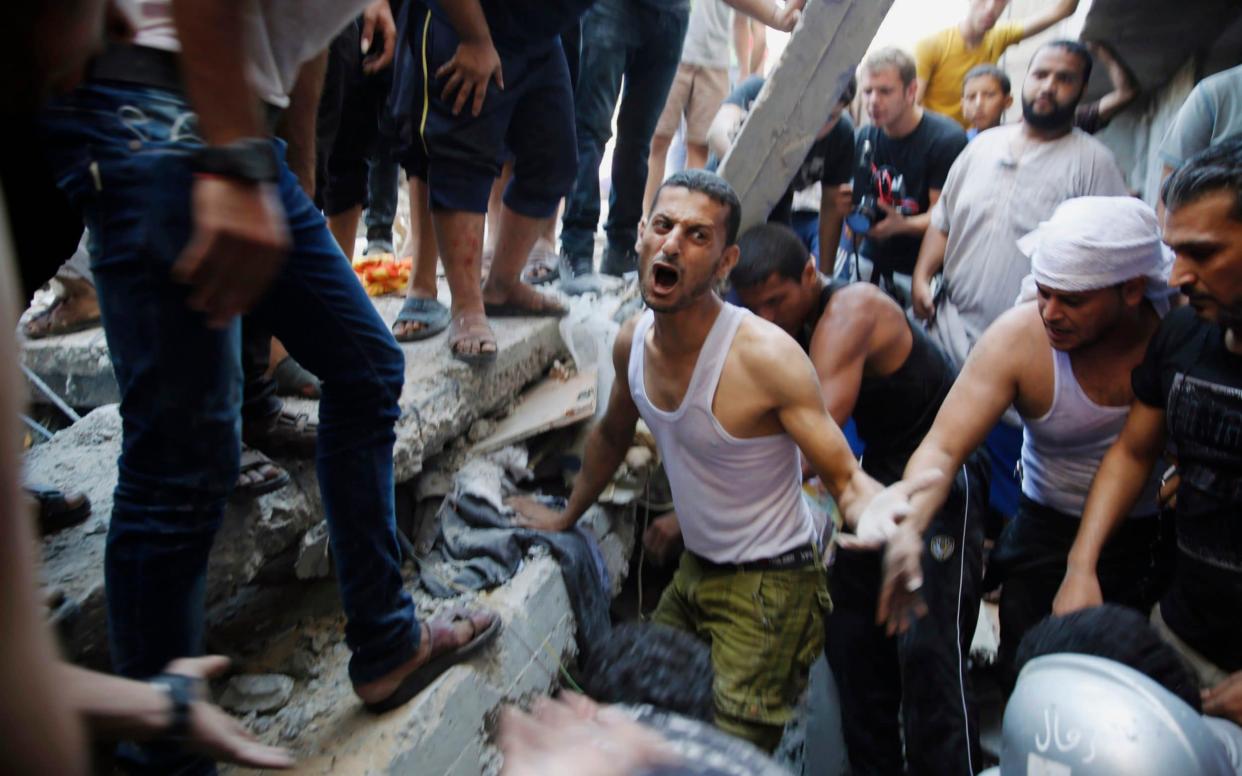Israel faces possible war crimes cases as ICC rules it has jurisdiction in occupied territories

The International Criminal Court on Friday night ruled that it had jurisdiction over the Palestinian territories, in a landmark decision that opens the door to war crime investigations against Israeli soldiers.
After months of deliberation, senior judges announced that the court had jurisdiction over "the territories occupied by Israel since 1967," referring to Gaza, the West Bank and East Jerusalem.
The decision may also lead to a probe into crimes allegedly committed by Palestinian terrorists, such as the Islamist group Hamas.
The ruling is a hammer blow to the Israeli government, which has argued vehemently that the court does not have jurisdiction over the Palestinian territories because they are not a sovereign state.
But it is a major coup for Palestinian leaders, who have led an international campaign demanding that Israeli soldiers are investigated for alleged war crimes, in particular those said to have been committed in Gaza from 2014 onwards.
Judges said their decision was based on jurisdictional rules in the court's founding documents, such as the Rome Statute, and insisted it was not part of an attempt to rebrand the Palestinian territories as a state.
The move to investigate alleged war crimes in the Palestinian territories was brought by Fatou Bensouda, the court's chief prosecutor, who last year said there was a "reasonable basis" to begin legal proceedings.
She then asked ICC judges to rule on whether the situation fell under the court's jurisdiction, before a formal investigation would be opened - and on Friday the judges ruled in her favour.
Ms Bensouda has become a controversial figure in Israel due to what is perceived as her relentless pursuit of alleged war criminals in the Israel Defence Forces. Most Israeli citizens have served in the armed forces and feel personally targeted by the campaign for a war crimes probe.
Israeli media has branded the Gambian-born prosecutor as the country's “public enemy number one,” while Israeli prime minister Benjamin Netanyahu once accused her of “pure antisemitism.”
Ms Bensouda vehemently denies the antisemitism charge, and insists that the court pursues its work with “the utmost independence, objectivity, fairness and professional integrity.”
Human rights groups and the Palestinians say an international legal case is long overdue, in particular over the Gaza war in 2014 where more than 1,400 Palestinian civilians died according to the United Nations.
Responding to the news on Friday, Mr Netanyahu accused the ICC of behaving like a "political body" rather than a " judicial institution," and claimed that the decision undermined the "right of democracies to defend themselves against terrorism".
Gabi Ashkenazi, the Israeli foreign minister, added: "The ICC has no jurisdiction to deliberate the Palestinian case. The State of Israel is a robust democracy with an independent and effective legal system that is deeply respected all over the world.
"The judges’ decision rewards Palestinian terrorism, as well as the refusal of the Palestinian Authority to return to direct negotiations with Israel, and will further polarize both sides."
The US state department appeared to back Mr Netanyahu in the row last night, warning of "serious concerns" and said it was conducting a review into the decision.
In a statement, the Palestinian foreign ministry hailed the decision as a "historic day for the principles of accountability."
Mohammed Shtayyeh, the Palestinian prime minister, said it was "a victory for justice, humanity, the values of truth, fairness, freedom and for the blood of the victims and their families."
Sami Abu Zuhri, a Hamas official, described the decision as "an important development that contributes in protecting the Palestinian people."

